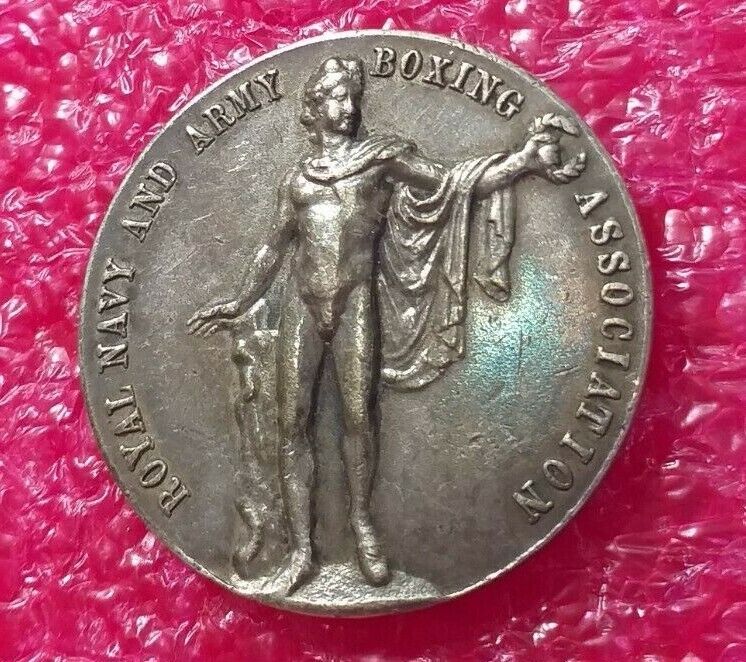-40%
WWI France 1917 British Army Scottish Command Boxing Championship Silver medal
$ 95.04
- Description
- Size Guide
Description
Shipping with tracking number fromEurope
Great Britain
was a leading
Allied Power
during the
First World War
of 1914–1918, fighting against the
Central Powers
, especially Germany. The armed forces were greatly expanded and reorganised—the war marked the founding of the
Royal Air Force
. The highly controversial introduction, in January 1916, of conscription for the first time in British history followed the raising of the largest all-volunteer army in history, known as
Kitchener's Army
, of more than 2,000,000 men.
[1]
:504
The outbreak of war was a socially unifying event.
[2]
Enthusiasm was widespread in 1914, and was similar to that across Europe.
[3]
On the eve of war, there was serious domestic unrest amongst the labour and suffrage movements and especially in Ireland. But those conflicts were postponed. Significant sacrifices were called for in the name of defeating the Empire's enemies and many of those who could not fight contributed to philanthropic and humanitarian causes. Fearing food shortages and labour shortfalls, the government passed legislation such as the
Defence of the Realm Act 1914
, to give it new powers. The war saw a move away from the idea of "
business as usual
" under Prime Minister
H. H. Asquith
,
[4]
and towards a state of
total war
(complete state intervention in public affairs) by 1917 under the premiership of
David Lloyd George
;
[5]
the first time this had been seen in Britain. The war also witnessed the first
aerial bombardments of cities in Britain
.
Newspapers played an important role in maintaining popular support for the war.
[6]
Large quantities of propaganda were produced by the government under the guidance of such journalists as
Charles Masterman
and newspaper owners such as
Lord Beaverbrook
. By adapting to the changing demographics of the workforce (or the "dilution of labour", as it was termed), war-related industries grew rapidly, and production increased, as concessions were quickly made to
trade unions
.
[7]
In that regard, the war is also credited by some with drawing women into mainstream employment for the first time.
[8]
Debates continue about the impact the war had on women's emancipation, given that a large number of women were granted the vote for the first time in
1918
. The experience of individual women during the war varied; much depended on locality, age, marital status and occupation.
[9]
[10]
The civilian death rate rose due to food shortages and
Spanish flu
, which hit the country in 1918.
[11]
Military deaths are estimated to have exceeded 850,000.
[12]
The Empire reached its zenith at the conclusion of peace negotiations.
[13]
However, the war heightened not only imperial loyalties but also individual national identities in the Dominions (Canada, Newfoundland, Australia, New Zealand and South Africa) and India.
Irish nationalists
after 1916 moved from collaboration with London to demands for immediate independence (see
Easter Rising
), a move given great impetus by the
Conscription Crisis of 1918
.
[14]
Military historians continue to debate matters of tactics and strategy. However, in terms of memory of the war, historian Adrian Gregory argues that:
"The verdict of popular culture is more or less unanimous. The First World War was stupid, tragic and futile. The stupidity of the war has been a theme of growing strength since the 1920s. From
Robert Graves
, through '
Oh! What a Lovely War
' to '
Blackadder Goes Forth
,' the criminal idiocy of the British High Command has become an article of faith."
[15]












